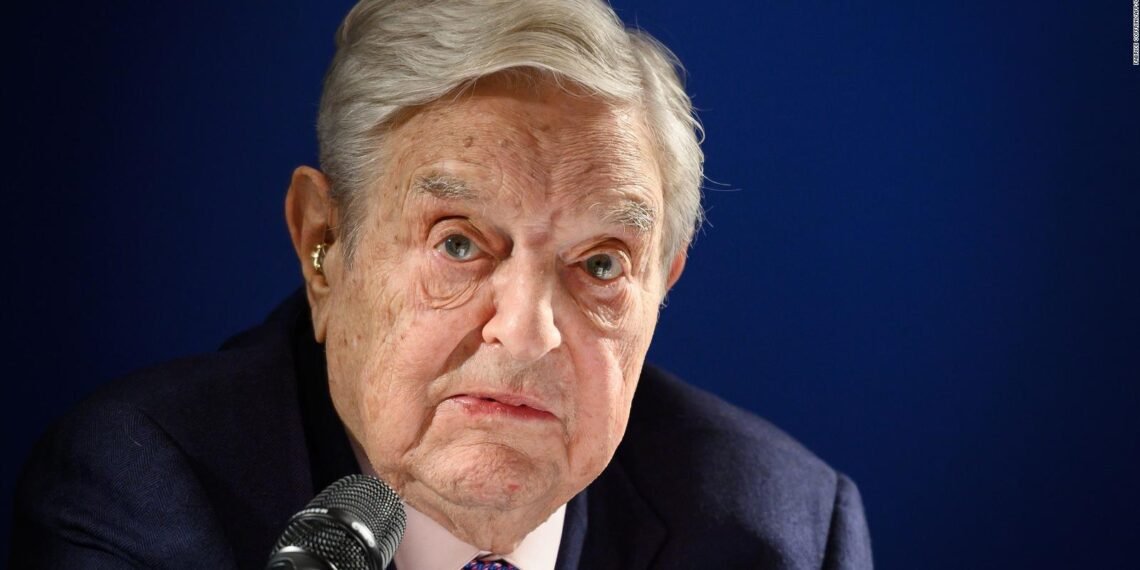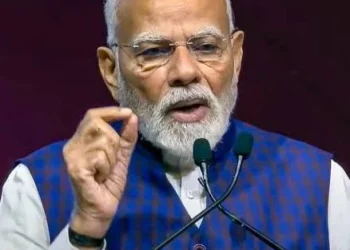From a Holocaust survivor to a global financier, George Soros’s journey is one of unparalleled influence and controversy. While his Open Society Foundations advocate for democracy and human rights, India’s BJP accuses him of funding organizations to destabilize the nation’s political and economic stability.
BY PC Bureau
Who is George Soros?
George Soros, born György Schwartz on August 12, 1930, in Budapest, Hungary, is one of the world’s most influential financiers and philanthropists. A Holocaust survivor, Soros escaped Nazi-occupied Hungary in 1947 and eventually settled in London, where he studied at the London School of Economics. Under the mentorship of philosopher Karl Popper, he developed an interest in the concept of “open societies,” a theme that would later dominate his philanthropic work.
Soros’s Business Career
Soros’s business success began in the world of hedge funds. In 1969, he established Soros Fund Management, which would grow into one of the most successful hedge funds in history. His groundbreaking strategy, based on identifying and exploiting macroeconomic trends, earned him a reputation as one of the sharpest minds in global finance.
Soros gained international fame (and notoriety) in 1992 as “The Man Who Broke the Bank of England.” He shorted the British pound during the European Exchange Rate Mechanism crisis, earning a profit of over $1 billion in a single day. This bold move cemented his status as a financial powerhouse, though it also drew criticism for allegedly exacerbating economic instability in some regions.
Today, Soros is estimated to have a net worth of approximately $8.6 billion, according to Forbes, though this figure has decreased significantly due to his extensive philanthropic contributions.
Philanthropy and the Open Society Foundations
In 1979, Soros turned his attention to philanthropy, establishing the Open Society Foundations (OSF). The organization operates in over 120 countries and focuses on promoting democracy, human rights, freedom of expression, and social justice. To date, Soros has donated more than $32 billion to various causes through the OSF.
The foundation has supported initiatives ranging from education and public health to legal reform and minority rights. Soros’s efforts played a pivotal role in supporting Eastern European countries transitioning to democracy after the fall of communism.
Controversy and Criticism
While Soros’s philanthropic work has earned him widespread acclaim in liberal and progressive circles, it has also made him a lightning rod for criticism, particularly from right-leaning governments and populist leaders.
Criticism of His Political Activities
Soros is a prominent critic of authoritarian regimes and has been vocal about his opposition to leaders like Vladimir Putin, Viktor Orbán, and Donald Trump. His funding of organizations advocating for democracy and social reform has led some to accuse him of meddling in the internal affairs of sovereign nations.
In India, Soros attracted attention when he suggested that revelations about the Adani Group could weaken Prime Minister Narendra Modi’s government. The BJP and its supporters have since portrayed him as an antagonist seeking to undermine India’s sovereignty.
Conspiracy Theories
Soros has also been the subject of numerous conspiracy theories, often accusing him of orchestrating political unrest or manipulating financial markets for political purposes. Many of these theories, which lack evidence, have been criticized for fueling antisemitic tropes due to Soros’s Jewish heritage.
Legacy and Influence
Soros’s influence extends beyond finance and philanthropy. His contributions to shaping debates on globalization, democracy, and human rights have made him a significant figure in contemporary global politics. His Open Society Foundations remain a powerful force for change, despite facing increasing resistance from governments in countries like Hungary and Russia, where they have been labeled as foreign agents.
Soros in the Context of Indian Politics
In the Indian political landscape, Soros has become a focal point in the BJP’s narrative of foreign interference. The ruling party has accused him of funding organizations that allegedly aim to destabilize India. These allegations have been vehemently denied by opposition leaders, who view the claims as a diversionary tactic to deflect attention from domestic controversies.
George Soros remains a polarizing figure. To his supporters, he is a champion of democracy and human rights, using his wealth to address systemic inequalities. To his critics, he represents the overreach of global capital and foreign influence in domestic affairs. As debates over his role in international and Indian politics continue, Soros’s impact on the world—both celebrated and contested—remains undeniable.













